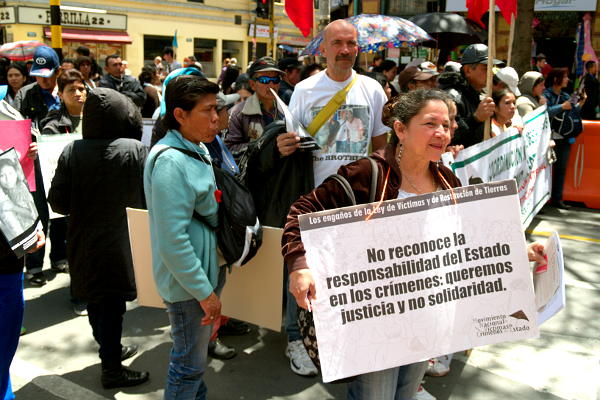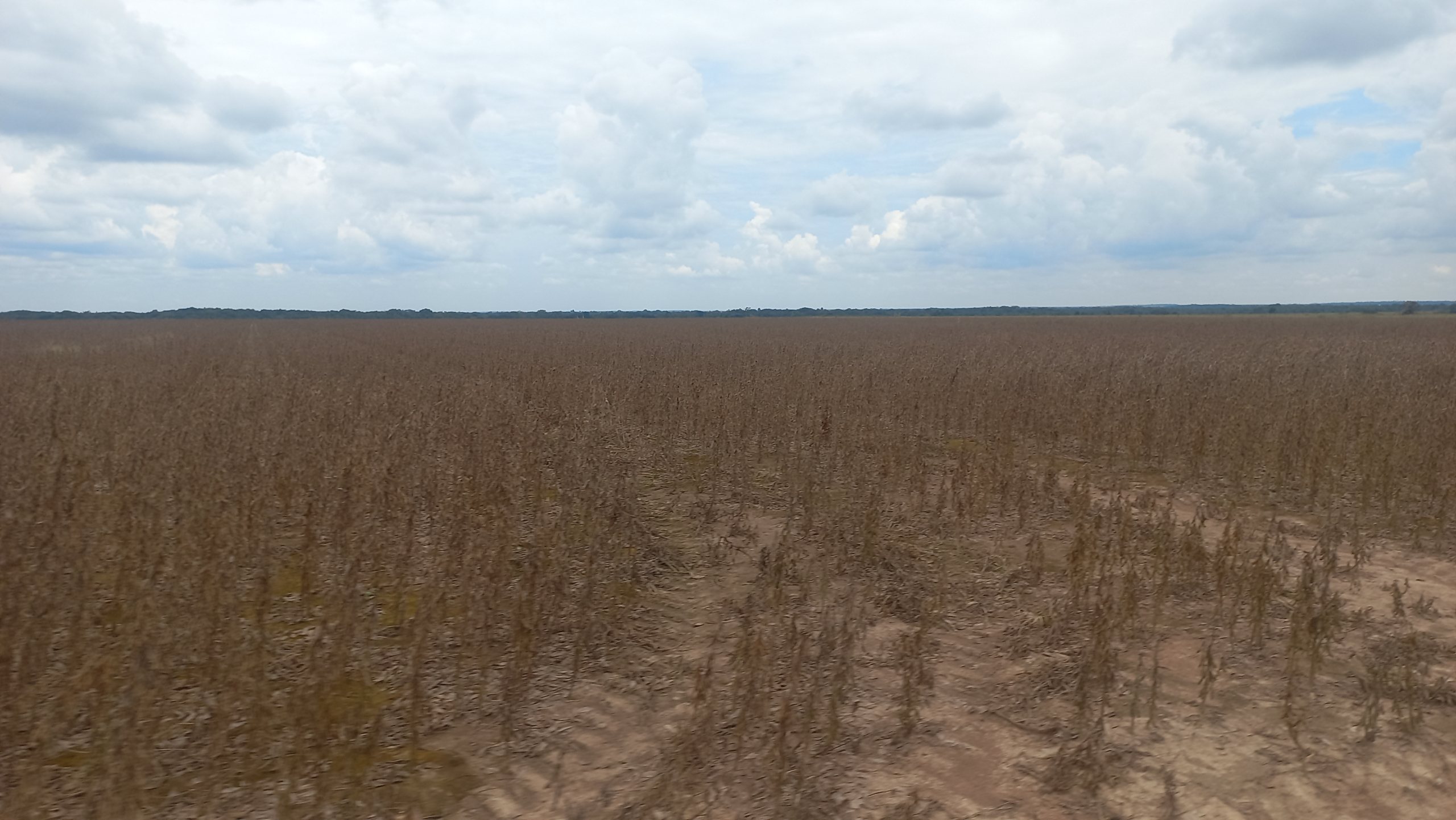By: Marcela Zuluaga C.
The coal mining activity in the Colombian Caribbean not only affects the health of its neighbors but has also displaced entire communities, leaving a path of dispossession and resistance.
El Turbión spoke with some residents near the coal mines, located 850 km from Bogotá, including an Afro leader, two representatives of the Yukpa people, and two Wayuú women leaders; all agree that their lives and those of their communities have been affected by the mining activity. Learn about their stories of displacement and struggle for their rights.
The Struggle of Tabaco: Resistance Against Mining Expansion

The community of Tabaco was displaced by mining along with the public force to mine the coal beneath this Afro-Colombian town. Today, the people who once made up the Tabaco community only have it as a memory and a longing, as the diaspora now inhabits various Colombian departments like La Guajira, Cesar, Magdalena, Atlántico, and other countries like Venezuela, Ecuador, Brazil, and Mexico.
Samuel Arregoces, a leader of the Tabaco and Manantial communities, and former representative of the Council «Negros Ancestrales«, fought for more than 20 years for his community, during which he suffered persecution, threats, attacks, and economic isolation for opposing the large mining companies and demanding their rights, as other peoples like the Yukpa and Wayúu have done.
Samuel passed away last April 27 due to health complications related to cancer but left behind a legacy of defending his territory against the mining multinationals, characterized by his determination and dedication.
Samuel had no shortage of reasons to resist and fight against El Cerrejón. Before his death, Samuel told El Turbión that he and his family in Tabaco saw the destruction of their community as a distant threat that slowly encircled them and eventually displaced them:
As El Cerrejón grew and bought our surroundings until we were practically in the middle of the exploitation, many problems arose for us because we were confined in our territory. We never thought the mine would come so close to us; we saw it as something remote because my paternal family had already been evicted from Manantial, which was the first community El Cerrejón ejected from the territory.
Samuel told El Turbión that faced with these abuses, he became a social leader, and one of his main achievements was helping the communities lose their fear of denouncing what was happening in their territory, to the point of proving that El Cerrejón violates several human and environmental rights of the communities:
You don’t choose and say: I want to be a social leader, I want to be an environmentalist; it was forced on me. First, to get El Cerrejón out of our territory. Tabaco had to disappear so that other communities wouldn’t go through what we did and what had already happened with Manantial… with each of the violations of the 35 communities they have affected; Cerrejón has more than 14 court rulings against them, which they have not complied with, but we have managed to prove that it is a company that violates human, social, and environmental rights.
Tabaco: A 200-Year-Old Town Destroyed by Cerrejón
Regarding Tabaco, the José Alvear Restrepo Lawyers’ Collective (Cajar), a non-profit human rights organization in Colombia, includes the displacement of this Afro-peasant community among the 12 examples of corporate impunity of the coal multinationals in La Guajira. Cajar states in its report that in 2002, the Tabaco community filed a tutela action that led the Supreme Court of Justice to issue a ruling establishing that the relocation of the community required concrete and immediate actions.
According to the Collective, to ensure compliance with the ruling, the community filed another tutela action, which was brought before the Constitutional Court, which issued ruling T-329 of 2017, determining that it was necessary to protect the violated rights of the community and designated the case as «Displacement Induced by Development,» and ordered the relocation of the community within five months of the notification of the ruling. As of 2024, seven years later, this ruling has still not been enforced.
The territory that Cerrejón forcibly took from the ancestral town of Tabaco can be calculated in the aforementioned ruling, which states: «The human rights of the population, which was settled in an area of 15 hectares, were violated, and the collective plots or properties covered approximately more than five thousand (5,000) hectares.» Territories they had inhabited for 200 years.
The town of Tabaco was founded in 1780 by a group of enslaved people from Africa who survived the shipwreck of the Spanish galleon that brought them to the Caribbean to be sold as slaves. According to the ruling: «Once free, they settled on the banks of the Ranchería River, where they engaged in agriculture and livestock farming… Initially, the town was called Brunibella, a name given by the indigenous people, and later it was called Tabaco, possibly due to the presence of that crop in the vicinity.
Unfortunately, the destruction caused by coal exploitation by Cerrejón is not an isolated case. Similarly, the indigenous Yukpa people have faced a constant struggle against coal extraction in the Serranía del Perijá. Both peoples, separated by geography but united by a history of resistance and dispossession, show how extractive activities have violated the human and territorial rights of ancestral communities in Colombia.
The Footprint of Coal Exploitation in the Serranía del Perijá
The Yukpa indigenous people inhabit theSerranía del Perijá, between Colombia and Venezuela. Their former territory extended to the west, from the Cesar River to Maracaibo Lake, but to the east, their territory has been reduced by colonization and coal exploitation.
The relationship of the Yukpa people with the territory is unique as it is related to their language, customs, and origin stories, and an example of this deep connection is in the words of Carlos Daniel Ortiz, a member of the Yukpa Sokorpa council:
The Yukpa without the territory are nothing because in the territory we have everything, there we have food security, plants, medicine, education. Before the mine arrived, we were happy, but when the mines came, they never consulted with the Yukpa people, they just arrived.
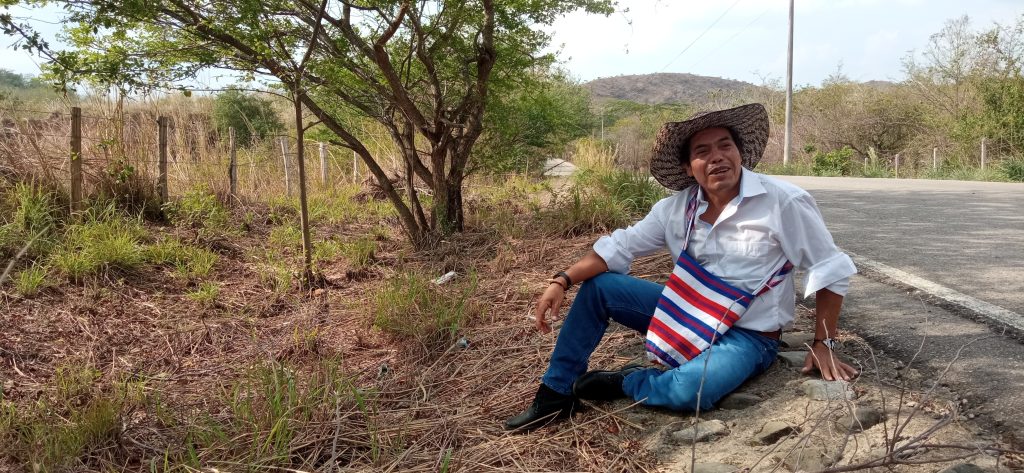
For Enrique Garcerán Fernández, Governor of the Socorpa Council, the future of his Yukpa people lies in continuing the fight:
We will not let them take our territory; we have resisted for 500 and 600 years. We, the six reservations, carry a single proposal, a single people, so we fight together. The future is that we are going to reclaim our Mother Earth, and if we can, with the help of other nations and other people!
Yukpa Resistance: Safeguarding the Rivers and Territory
One of the struggles of the Yukpa people is for the Cesar and La Guajira rivers, which have become victims of the impact of thermal coal exploitation, a business that affects the food sovereignty of the ancestral people. In the six councils, there have been times of fish shortages due to the diversion of the Cesar River for coal extraction and the cultivation of African oil palm. Today, the Cesar River no longer provides fish fit for human consumption, endangering both the communities’ food supply and the territory’s fauna.
It is also affecting all those who lived off the river; it used to be fish, and now it’s sardines, the river is contaminated, and on top of that, the monocultures that are here now, like the palm, then they took, diverted the river; they use some chemicals, and those same chemicals fall back into the river, that’s where the sardines are, and they come up contaminated, and that’s making us sick, but they don’t say that, so from our worldview we know it has to do with the mining that’s here.
Enrique Garcerán’s description of sardine contamination caused by coal exploitation and African palm cultivation is part of the social and environmental realities caused by these mega-projects, and for this reason, the Yukpa indigenous governor does not hesitate to send a message from his people to the world, especially to those who buy the thermal coal that comes from their territories:
To those who order the exploitation, I say: let them hold their hearts and think that the love of money is destroying the people, the world, that they have a conscience, that they don’t close themselves off, that we all understand the message we’re giving on all continents, and let’s think about what the world will be like 20 years from now.
A Call from the Yukpa Heart
For the defender of the Yukpa people, Edwar Álvarez, it is an unprecedented act of ethno-repair that the Colombian Constitutional Court, through ruling T-305 of 2023, protects their territorial, cultural, life, health, and prior consultation rights:
Resulting from a constant strategic litigation that the Yukpa indigenous people have been pursuing since 2016, where the high courts have preceded two land restitution rulings, the Yukpa people trust that the national government entities and the companies Prodeco and Drummond will comply in good faith and within the timelines set by the T-375 ruling of 2023 of the Constitutional Court.
Through this ruling, the Constitutional Court orders Prodeco, a subsidiary of the multinational Glencore, and the Drummond company to repair the Yukpa indigenous people for damages such as river contamination, lack of prior consultation with the community, and the risk of food insecurity due to open-pit mining activities, which this community has been denouncing for several years. It also establishes that the mentioned multinationals must guarantee the food security of the Yukpa children, through the formulation of a comprehensive care plan for this population, under the terms of this ruling.
Indigenous leader Esneda Saavedra questions the impacts of Glencore’s mining on the past, present, and future of her Yukpa people, who have historically inhabited the Serranía del Perijá in the Colombian department of Cesar:
I am a Yukpa woman from a reservation where Glencore arrived, and we have seen the transformation and environmental contamination that causes the death of children: more than 40 children die in our territory [this year], and this is due to open-pit mining and its pollution. It has caused the death of children and the environment for the people of Becerril and La Jagua de Ibirico.
Female Resistance: Guardians of Water and Land
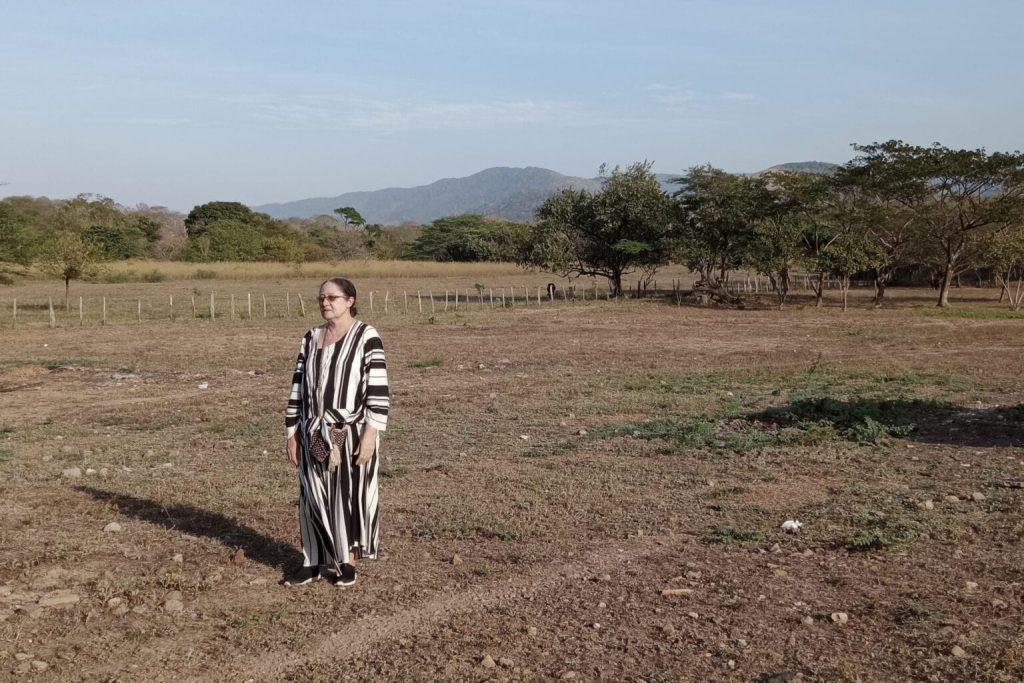
The Wayúu women know that their ancestral connection to water is increasingly a challenge; today, many communities of this ancestral people face the contamination and diversion of the few water sources in the region due to the expansion of El Cerrejón, the largest open-pit coal mine in the world.
One of the water sources destroyed by the coal industry is the Bruno stream. Carbones del Cerrejón Limited diverted the river to allow for the expansion of the La Puente mining pit. The consequences have been devastating for the Wayúu people living in the Middle Guajira because the diversion of the stream violates both their participation rights in the structuring of development projects that may affect them and the rights that ensure their physical and cultural survival, including life, water, health, and food security and sovereignty.
Aura Robles Gutiérrez, a Wayúu leader, artisan, and wise woman, is one of the plaintiffs in ruling SU-698 of 2017, a legal provision that addresses the impact of the Bruno stream diversion project on the Wayúu communities of Middle Guajira, and one of the company’s measures to dismiss the complaints was to deny her the right to self-recognition:
I started alone with the defense of the Rancherías River because I found out they were going to divert it, and I started asking questions. So when they saw me worried, what Cerrejón did was exclude me from the prior consultation, and I filed a tutela. What the company responded was that I was not Wayúu, that I had no territory, and that I had no caste, for a Wayúu the worst insult is to say that they are not Wayúu.
It is worth noting that in 2017 the Court issued a provisional measure to suspend the works for the diversion of the Bruno Stream, one of the main water sources in La Guajira, thanks to a tutela filed by the communities supported by organizations such as the José Alvear Restrepo Lawyers’ Collective (Cajar), the Center for Research and Popular Education (Cinep), and the environmental organization Censat.
The ruling acknowledges the threat to fundamental rights such as water, health, and food sovereignty due to this diversion. According to Cajar, this ruling was notified to the parties in 2019, but the communities still denounce non-compliance.
Aura reflects on Glencore-Prodeco’s non-compliance, stating that the mining company is focused on its business, but a major culprit is the State:
Glencore was born as a company to make money with minerals, our problem lies in the institutions created to defend our rights and protect the environment, those institutions have been very permissive, those institutions are the ones that gave authority to Glencore to destroy everything: the environment, our lives, our health, our food, our water sources.
Another woman leader who has opposed mining extraction is Deilys Cristina Uriana, a member of the Women Defenders of the Territory Collective, an organization founded in 2012 as a result of the struggle against the «P500 project» which aimed to divert 26.2 kilometers of the Ranchería River to extract 500 million tons of coal but encountered resistance from the Wayúu women:
In that year, all the communities around the Ranchería River, as natural persons, inhabitants, natives of their own territory, decided to take the initiative to carry out this struggle that lasted three years until that project was stopped.
For Deilys, thermal coal mining has stolen their territory, but the women are determined to raise their children according to their way of life:
In our community, the only thing they have done is steal our territory, damage our river, and tear apart our social fabric. The Province that I paint, I know it will not be easy, but within a few years, we will be able to recover the territories that have been lost, that the river will return to what it was, and that our children will return to the life we had before.
Coal exploitation has caused the forced displacement of peoples and severely affected the territorial and cultural rights of indigenous peoples like the Yukpa and Wayúu, to the extent that these situations have worsened to the point of putting them at risk of physical and cultural extinction. Additionally, river contamination and diversion due to mining waste pose a threat to the food security and health of those living near coal mines.
For the surrounding peoples and communities, the business between the State and the mining companies has caused the destruction of life as they knew it, while the mining companies have reaped significant economic benefits.
Coal exports have generated billions of pesos in revenue through taxes, royalties, and contributions. In 2022, global coal consumption reached its highest level in history: 8.3 billion tons were burned worldwide to produce electricity, as recently reported by the International Energy Agency (IEA). As of May 2023, Glencore reached a market capitalization of USD 70.47 billion, becoming the world’s second most profitable coal company after China Shenhua Energy.
Justice for the Affected Communities?
The National Environmental Licensing Authority (Anla) fined the Prodeco mining company, a subsidiary of the multinational Glencore, $1.739 billion for not adequately implementing environmental measures in its Calenturitas mining project in Cesar.
The fine, totaling $1,739,012,826, against the company C.I. Prodeco S.A., the holder of the Environmental Management Plan (PMA) for the Calenturitas coal project, relates to the failure to implement live barriers or, alternatively, physical barriers around the waste dump areas, coal storage yards, and along the mining corridor, especially in front of the towns of Boquerón and Plan Bonito.
It is important to remember that the mining company renounced its mining titles in La Jagua and Calenturitas in Cesar, the cessation of its operations left nearly seven thousand workers unemployed, and 40% of its obligations unmet.
The legacy of resistance from communities like Tabaco, the Yukpa, and the Wayúu is evidence of the struggle and resilience amid the damage caused by coal mining in Colombia. Despite promises of economic development and progress, the scars left on these territories and their inhabitants are deep and persistent. These communities have not only faced displacement and the destruction of their environment but have also had to fight against the impunity of the multinationals that continue to operate without facing the consequences.
The case of Tabaco, which after 200 years of existence was eradicated by mining, illustrates how the desire for profit can override fundamental human rights. However, the struggle continues, not only in the courts but also in the collective memory and the actions of social leaders who, like Samuel Arregoces and others, have given their lives in defense of their territories. The remaining question is whether full justice will ever be served for those who have paid the highest price for coal development in Colombia, and whether it is possible that history will not repeat itself in other communities that continue to resist.
This work is part of the series “Exposing Glencore’s ‘Greenwashing’,” an investigation developed by El Turbión in Colombia, Danwatch in Denmark, and MediaContinente in Sweden on the environmental, labor, and human rights impacts of Glencore’s coal mining operations.
This investigation has been developed with the support of Journalismfund Europe.
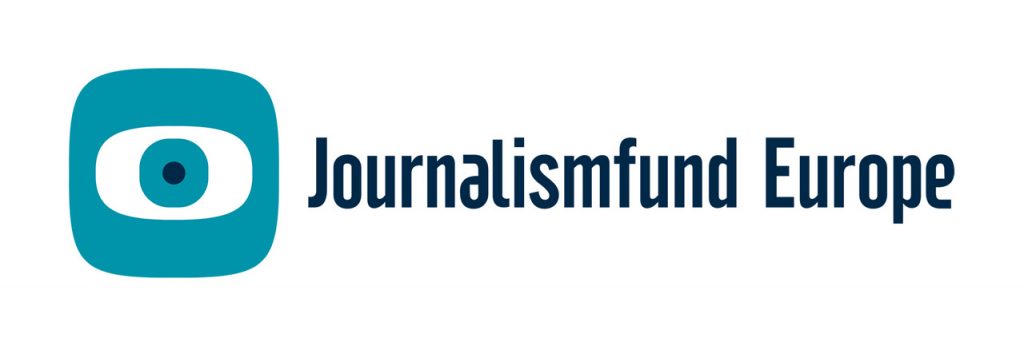
Also, it received support from International Media Support for the initial stage of the investigation.

In recognition of El Turbión’s commitment to integrity and excellence in journalism, the outlet has obtained the Trusted Journalism Initiative Certification, promoted by Reporters Without Borders under the international standard CEN CWA 17493:2019.
Si encuentras un error, selecciónalo y presiona Shift + Enter o Haz clic aquí. para informarnos.




